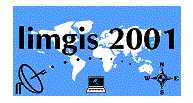


GEOGRAPHIC
Applications of Remote
Sensing and GIS in Hydrology
Remote
Sensing and GIS technologies are well-established tools and are routinely used
in applied hydrology, forestry, land use dynamics analyses, etc. Abilities of
remote sensing technology in hydrology are to measure spatial, spectral, and
temporal information and provide data on the state of the earth's surface. It
provides observation of changes in hydrological states, which vary over both
time and space that can be used to monitor hydrological conditions and changes.
Sensors used for hydrological applications cover a broad range of
electromagnetic spectrum. Both active sensors that send a pulse and measure the
return pulse (like radar, microwave etc.) and passive sensors that measure
emissions or reflectance from natural sources (like Sun, thermal energy of the
body) are used. Sensors can provide data on reflective, thermal and dielectric
properties of earth's surface.
Remote
sensing techniques indirectly measure hydrological variables, so the
electromagnetic variables measured by remote sensing have to be related to
hydrological variables empirically or with transfer functions.
Remote
sensing applications in hydrology that are being used today are mainly in:
·
Precipitation
estimation
·
Runoff
computations
·
Snow hydrology
applications
·
Evapotranspiration
over land surface
·
Evaluation of
soil moisture content
·
Water quality
modelling
·
Groundwater
identification and estimation
·
Hydrological
modelling
GIS can play fundamental role in the application of spatially distributed data to hydrological models. In conventional applications, results either from remote sensing or from GIS analyses serve as input into hydrological models. Land use and snow cover are the most commonly used input variables for hydrological models. The integration of GIS, database management systems and hydrological models speed up the use of remote sensed data in hydrological applications.